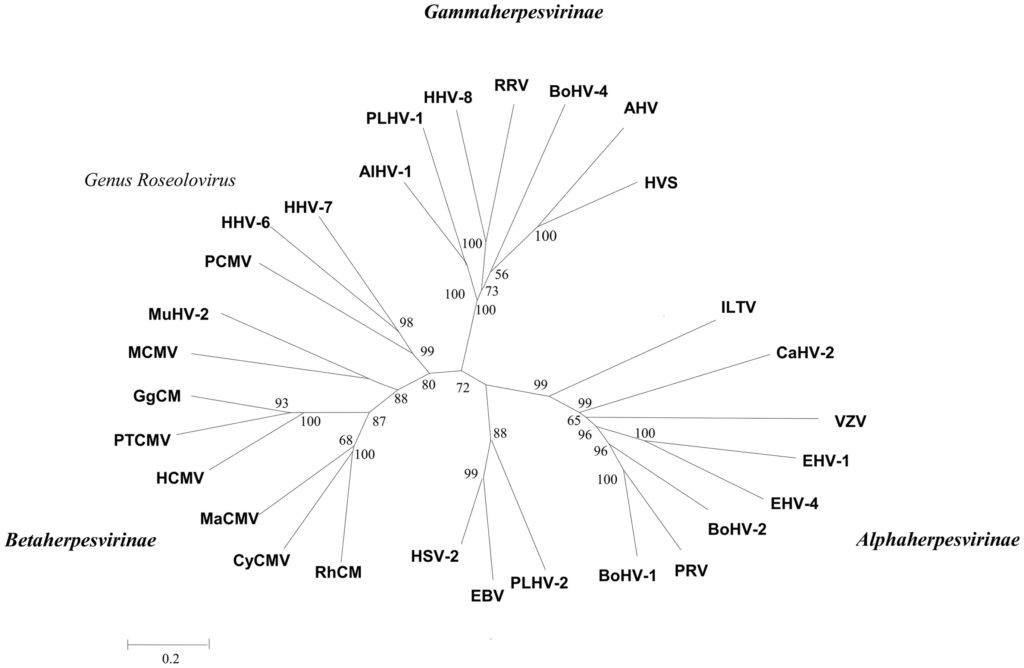Porcine CMV is an immunosuppressive virus that inhibits T-lymphocyte and macrophage immune functions, and like HHV-6A, it causes infertility. Porcine CMV infection also reduces the survival of pig xenotransplants.
Porcine CMV (PCMV) will be designated as a roseolovirus by the International Committee on Taxonomy of Viruses in February. The official name will be suid betaherpesvirus 2. A genomic study determined recently that PCMV is much closer to the roseoloviruses than to cytomegalovirus (Gu 2014). In fact, HHV-6 antibodies cross react with PCMV but HCMV antibodies do not (Fiebig 2017).
The ICTV will also designate mouse thymic virus (MTV) as a roseolovirus, called Murid betaherpesvirus 3. This virus was sequenced and renamed murine roseolovirus (MRV) by a group at Washington University (Patel 2017).
What do the three roseoloviruses HHV-6, murine roseolovirus (MRV/ MTV) and PCMV have in common? All three are immunosuppressive. PCMV inhibits host immune function and defense mechanisms, targeting lymphocytes (Liu 2014) and MRV/MTV causes T cell depletion in mice (Patel 2017). Both HHV6A and HHV-6B have potent immunosuppressive properties (Dagna 2013).
The ICTV proposal for reclassification of these viruses can be viewed here.
A spreadsheet summary is also available.


